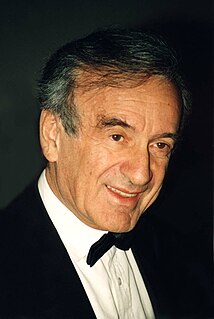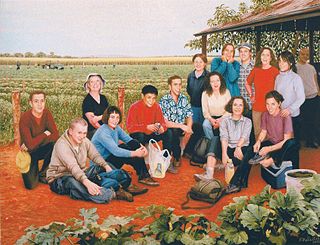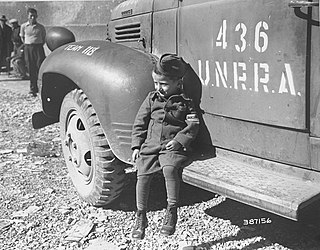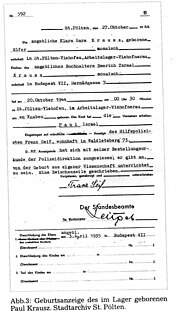
Elie Wiesel was a Romanian-born American writer, professor, political activist, Nobel laureate, and Holocaust survivor. He authored 57 books, written mostly in French and English, including Night, a work based on his experiences as a Jewish prisoner in the Auschwitz and Buchenwald concentration camps.

Thomas Michael Keneally, AO is a prolific Australian novelist, playwright, essayist and actor. He is best known for his non-fiction novel Schindler's Ark, the story of Oskar Schindler's rescue of Jews during the Holocaust, which won the Booker Prize in 1982. The book would later be adapted into director Steven Spielberg's 1993 film Schindler's List, which won the Academy Award for Best Picture.

Night is a 1960 memoir by Elie Wiesel based on his Holocaust experiences with his father in the Nazi German concentration camps at Auschwitz and Buchenwald in 1944–1945, toward the end of the Second World War in Europe. In just over 100 pages of sparse and fragmented narrative, Wiesel writes about the death of God and his own increasing disgust with humanity, reflected in the inversion of the parent–child relationship as his father deteriorates to a helpless state and Wiesel becomes his resentful, teenage caregiver. "If only I could get rid of this dead weight ... Immediately I felt ashamed of myself, ashamed forever." In Night everything is inverted, every value destroyed. "Here there are no fathers, no brothers, no friends", a kapo tells him. "Everyone lives and dies for himself alone."
Helen Dale is an Australian writer and lawyer. She is best known for writing The Hand that Signed the Paper, a novel about a Ukrainian family who collaborated with the Nazis in The Holocaust, under the pseudonym Helen Demidenko.

David Matthew Hicks is an Australian who attended Al Qaeda's Al Farouq training camp in Afghanistan, and met with Osama Bin Laden during 2001. He was then detained by the United States in Guantanamo Bay detention camp from 2002 until 2007.

This is a selected bibliography and other resources for The Holocaust, including prominent primary sources, historical studies, notable survivor accounts and autobiographies, as well as other documentation and further hypotheses.

Azaria Chantel Loren Chamberlain was a nine-week-old Australian baby girl who was killed by a dingo on the night of 17 August 1980 during a family camping trip to Uluru in the Northern Territory. Her body was never found. Her parents, Lindy and Michael Chamberlain, reported that she had been taken from their tent by a dingo. However, Lindy was tried for murder and spent more than three years in prison, despite there being "no body, no evidence of motive and no eyewitness evidence that even vaguely incriminated the Chamberlains" and that "it appears that none of these witnesses—campers, rangers, trackers, searchers or local police who initially attended the scene—doubted that the baby had been taken by a dingo". Michael was also put in jail for some time. Lindy was released only after Azaria's jacket was found near a dingo lair and new inquests were opened. In 2012, 32 years after Azaria's death, the Chamberlains' version of events was officially supported by a coroner.

Sir Frank P. Lowy is an Australian-Israeli businessman of Jewish Slovakian-Hungarian origins and the former long-time Chairman of Westfield Corporation, a global shopping centre company with US$29.3 billion of assets under management in the United States, United Kingdom and Europe.

The Schindlerjuden, literally translated from German as "Schindler Jews", were a group of roughly 1,200 Jews who were saved by Oskar Schindler during the Holocaust. They survived the years of the Nazi regime primarily through the intervention of Schindler, who found them protected status as industrial workers at his enamelware factory in Kraków and, after 1944, in an armaments factory in occupied Czechoslovakia. There, they avoided being sent to death camps and survived the war. Schindler expended his personal fortune as an industrialist to save the Schindlerjuden.
There is a wide range of ways in which people have represented the Holocaust in popular culture.

The Boy in the Striped Pyjamas is a 2006 Holocaust novel by Irish novelist John Boyne. Much like the process he undertakes when writing most of his novels, Boyne has said that he wrote the entire first draft in two and a half days, without sleeping much, but also that he was quite a serious student of Holocaust-related literature for years before the idea for the novel even came to him. The book has received mixed reviews; while positive reviews praise the story as a moral, negative reviews attack the book's historical inconsistencies, and the potential damage it could cause to people's Holocaust education.
George Newhouse is an Australian human rights lawyer and a former local councillor. He is the principal solicitor of the National Justice Project, a human rights and social justice legal service, and currently an Adjunct Professor of Law at Macquarie University.
Alex (Uldis) Kurzem is an Australian pensioner originally from Eastern Europe, living in Melbourne; a centre-point of a long-standing controversy regarding his Holocaust memoir which has led to a financial windfall in the early 21st century. He was the subject of a TV documentary and a best-selling book by his son, translated into 13 languages; both entitled The Mascot.

The Childers Palace Backpackers Hostel fire on 23 June 2000 killed 15 backpackers – nine women and six men – at the former Palace Hotel in the town of Childers, Queensland, Australia, which had been converted into a backpacker hostel. Robert Paul Long was arrested for lighting the fire and charged with murder and arson. He was later sentenced to life imprisonment.
Jacob G. Rosenberg (1922–2008) was an author and Holocaust survivor. Rosenberg's poetry and prose have been published in both Australia and overseas.

Emmanuel Feildel is a French-Australian chef, restaurateur and television presenter trained in England, who is best known as one of the judges of the competitive cooking show My Kitchen Rules.

Joseph Schleifstein is a Polish-born American who survived the Buchenwald concentration camp at the age of four. He was hidden by his father in a large sack, enabling him to avoid detection by SS guards when arriving at the camp. Other prisoners helped his father keep him hidden and Schleifstein survived until the Americans liberated the camp. After the war, Schleifstein and his parents emigrated to the United States. He did not discuss his wartime experiences for decades, even with his children. His case was discovered by chance in 1999 with the anniversary of the movie Life is Beautiful being celebrated. It was discovered Schleifstein's story was inspiration for the script. This led to a search for him and an eventual newspaper interview.

Paul Kraus is a Holocaust survivor and mesothelioma patient. Kraus was born in and survived a Nazi forced labor camp during World War II. In 1997, Kraus was diagnosed with mesothelioma, a type of cancer caused by asbestos. Doctors originally believed that the cancer was terminal and he had only weeks to live, but Kraus is now considered to be the longest-lived mesothelioma survivor. Today, Kraus is an Australian author and cancer survivor whose writings focus on Australia, health, and spirituality. His book Surviving Mesothelioma and Other Cancers: A Patient’s Guide is a best-selling book on the subject.
Edward Jaku was a survivor of several German concentration camps during World War II, who wrote of his wartime experiences after emigrating to Australia. This memoir is called The Happiest Man on Earth and was published when he was 100 years old. It became an immediate best seller. Eddie had a sister Johanna (Henni) who also survived the Holocaust, and he changed his name to Edward (Eddie) as a tribute to his sister, who called him Eddie as an affectionate nickname.













